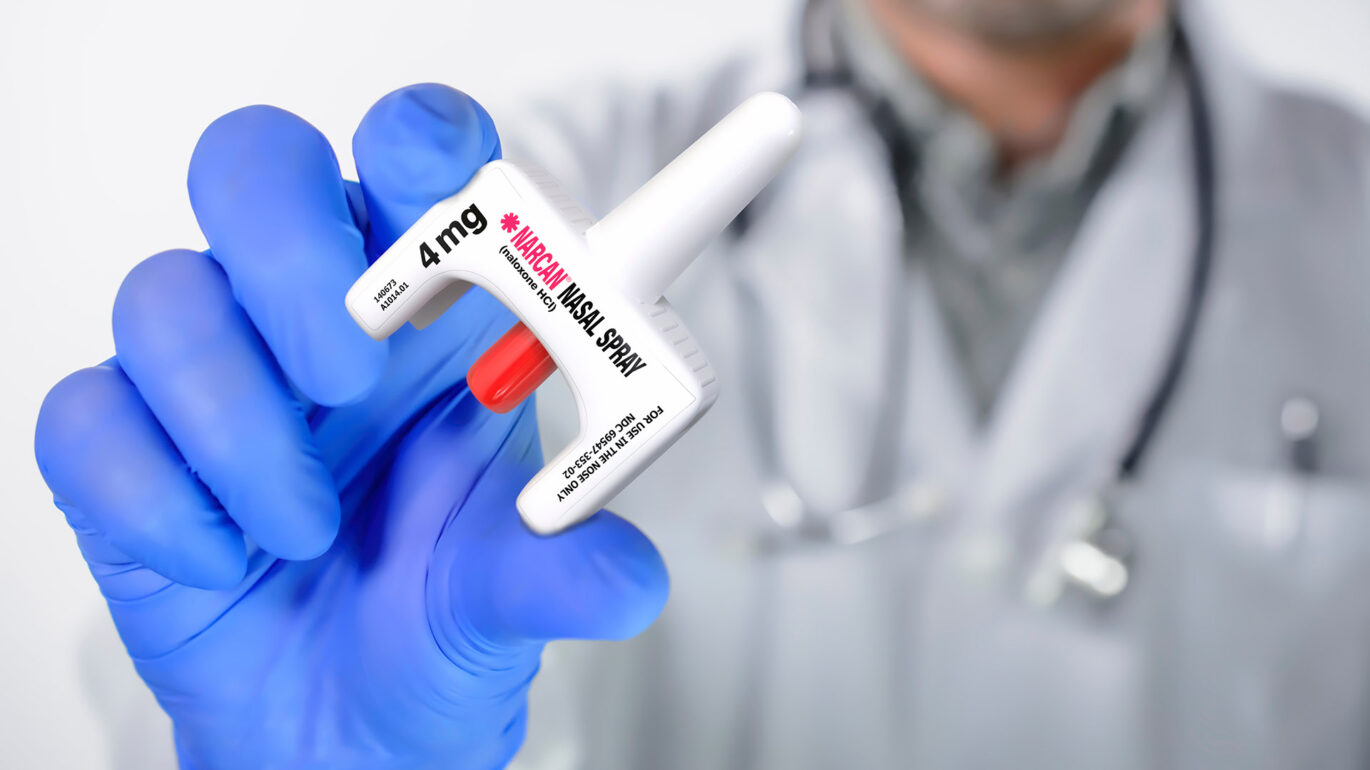Effective June 1st, 2023, the Occupational Health and Safety Act requires workplaces to have naloxone available if there is a risk of an employee experiencing an opioid overdose while at work. Check out New Naloxone Requirements: Your Top Questions Answered for details about what the new legislation entails.
Does your workplace need a naloxone kit?
It can be tricky for an employer to determine if they have any employees at risk of an overdose while at work, so the Ministry of Labour, Immigration, Training and Skills Development has provided some guidance to help with this. They have outlined five ways an employer may become aware of an employee who is at risk of an opioid overdose.
- A worker opioid overdose has already occurred in the workplace.
- A worker who uses opioids voluntarily discloses this risk
- Opioid use is observed in the workplace or discovered during a workplace inspection.
- Discarded opioid paraphernalia, such as used needles, are found in the workplace.
- The joint health and safety committee (JHSC) or others in the workplace bring the risk to the employers’ attention.
Pamela Patry, a health and safety consultant with WSPS, highlights the fact that, under the new legislation, the onus is not on the employer to discover if employees are at risk. “This is not an opportunity to dig into your employees’ personal lives. Employers are not expected to survey employees to assess risk level,” explains Pamela. Privacy around personal information must still be considered.
“Remember that this legislation focuses on the risk of an overdose while at work,” says Pamela. “It’s not about what people are doing on the weekend.” Employers are still bound by the Ontario Human Rights Code, so must ensure that they are not infringing on those rights.
Even if your workplace does not meet the criteria outlined in the legislation, you may choose to have a naloxone kit available anyway to serve workers, customers, or others that may enter your workplace. “It would be considered a best practice to have a naloxone kit available and staff trained, especially if you are in a high-risk community,” says Pamela.
Going beyond naloxone
When an employer does become aware that there is a risk of an employee having an opioid overdose at work, they may have questions about how to manage this risk beyond the naloxone requirement. As with other hazards, controls must be in place to protect workers. “Employers need to look at other health and safety pieces such as an impairment policy and reporting system,” says Pamela. “Make sure everyone understands how to recognize impairment and knows how to report it.” She also points out that managers and supervisors will likely need training and support, so they know how to handle an impaired worker.
Pamela recommends reviewing all your health safety policies and procedures through the lens of protecting a worker from an opioid overdose. For example, if you have a working alone policy, you may need to revise it to account for the possibility of needing someone to administer naloxone. Employers may want to integrate their first aid and naloxone training so that there’s no confusion about who to contact if an overdose occurs. “If the risk exists at your workplace, your first aiders should know how to deal with an opioid overdose,” says Pamela. Ultimately, clear communication, training, and the necessary tools will help employers manage addictions in the workplace.
How WSPS can help
Consulting
Connect with a workplace mental health consultant to learn more about how to manage addictions in the workplace.
Resources
- Safety in 60 Seconds – safety tip videos on naloxone in the workplace
- New Naloxone Requirements: Your Top Questions Answered
- Small Biz Safety Podcast Episode 24: NEW Naloxone requirements: will they impact your business?
- Sample Workplace Impairment Policy
- Reporting Suspected Impairment Checklist
Free webinar
- Safety Connection – Naloxone Kits: Understand how it impacts your workplace (June 21, 2023 – 1.5 hours)
Training
- Naloxone Awareness – Free eCourse (30 minutes) – This eCourse will teach you how to recognize an opioid overdose, administer naloxone, and acquaint workers with any hazards related to the administration of naloxone. The training includes a discussion on opioid-related deaths, overdose, and addiction.
- Mental Health First Aid Training (classroom, in-person or virtual; 2 days)
- Workplace Mental Health: How Managers Should Respond (classroom, in-person or virtual; 2 days)
Ontario’s Workplace Naloxone Program – training and kits
Ontario’s Workplace Naloxone Program will provide support to employers for up to two years by providing free online naloxone training for two workers per workplace and a free nasal spray naloxone kit.
For more details, and to register, visit these program providers:



